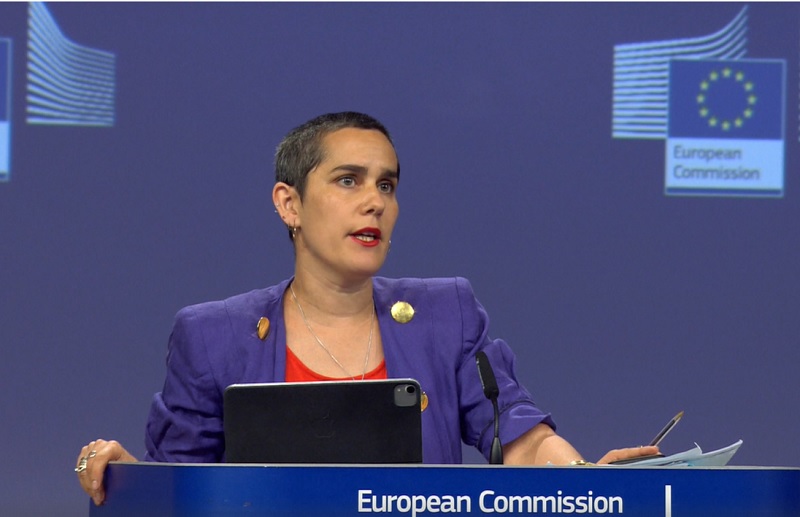BRUSSELS- European Commission spokesperson for Neighbourhood and Enlargement Ana Pisonero stated that the European Commission is currently analysing the reform agendas foreseen in the Growth Plan for the Western Balkans, submitted by partners from the Western Balkans, including Serbia, and noted that these reform agendas must contain an explanation of the measures that will contribute to aligning with EU foreign and security policy. “The Commission is currently analysing the reform agendas submitted by partners from the Western Balkans, Serbia and other partners from the Western Balkans,” Pisonero said at a press briefing in Brussels. She reminded that the adoption of the reform agendas will be carried out through the Commission’s implementation decision, and that before that, as she stated, the Commission will consult with member states. “The assessment is ongoing,” Pisonero said. She explained that obtaining financial support under this instrument will depend on the successful implementation of reforms, which will have to be agreed with the Commission, and which will cover both reforms in the socio-economic area as well as those concerning the EU fundamentals. Pisonero was responding to a journalist’s question about whether the relations of certain Western Balkan countries with Russia will affect the first payments from the Growth Plan for the Western Balkans, stating that there are several conditions and preconditions. When it comes to alignment with the EU’s common foreign and security policy (CFSP), she added, it is included as a specific goal in the context of the reform agendas. “This means that in the reform agendas, countries will have to explain how these measures, the measures they intend to undertake within their reform agendas, are expected to contribute to progressive and continuous alignment when it comes to the EU’s common foreign and security policy, which includes restrictive measures,” Pisonero said. Regarding Serbia’s relations with Russia, she pointed out the statement of the European Commission spokesperson Peter Stano, who at the briefing, in response to a question about commenting on the meeting between Serbia’s Deputy Prime Minister Aleksandar Vulin and Russian President Vladimir Putin, said that the EU expects Serbia to refrain from intensifying relations and contacts with Russia. He added that the EU expects all members of the Serbian government to respect the obligations that Serbia has voluntarily undertaken when it comes to joining the EU, which includes alignment with the EU’s foreign policy decisions and actions. (September 5)
Pisonero: EC analyzes the reform agendas of Serbia and other Western Balkan partners
by AI | 06.Sep 2024 | Europe in brief AI
Reform agendas of certain countries arrived at the EC.

 go to the original language article
go to the original language article